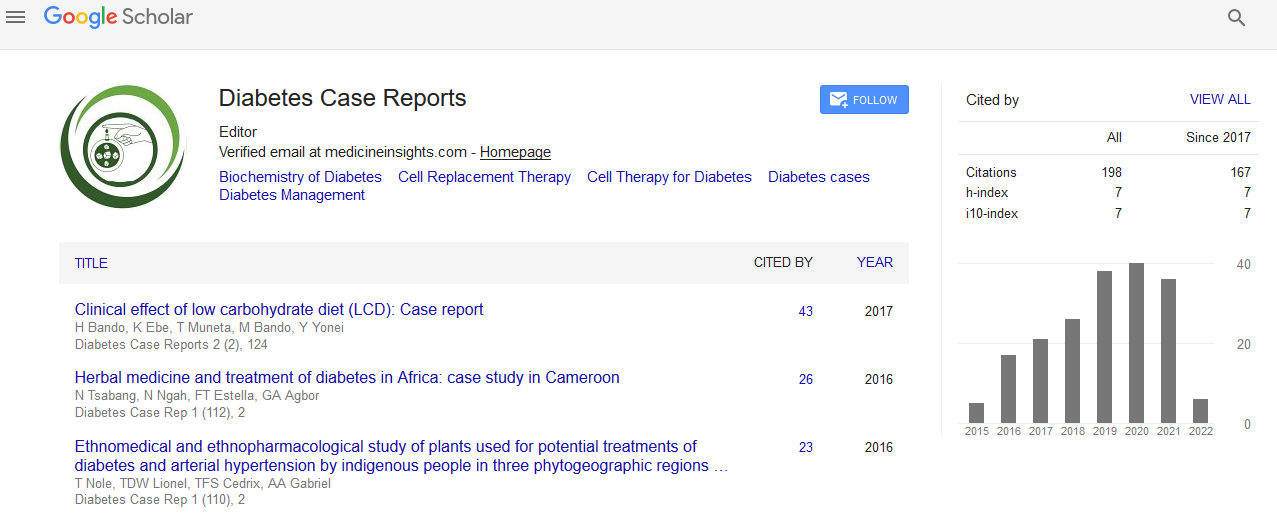Indexed In
- RefSeek
- Hamdard University
- EBSCO A-Z
- Euro Pub
- Google Scholar
Useful Links
Share This Page
Journal Flyer

Open Access Journals
- Agri and Aquaculture
- Biochemistry
- Bioinformatics & Systems Biology
- Business & Management
- Chemistry
- Clinical Sciences
- Engineering
- Food & Nutrition
- General Science
- Genetics & Molecular Biology
- Immunology & Microbiology
- Medical Sciences
- Neuroscience & Psychology
- Nursing & Health Care
- Pharmaceutical Sciences
Abstract
Metabolic Deregulation Associated with Glycemic Imbalance In Gabonese Diabetics
Guy-Stephane Padzys, Joseph Ndanga Tiagni, Joseph Privat Ondo, Krystina Mengue Me Ngou-Milama, Oriane Cordelia Aboumegone Biyogo, Amandine Mveang Nzoghe, Agate Gorra, Eric Baye and Joel Fleury Djoba Siawaya
Aim: Diabetes is a metabolic disease most often associated with complications when uncontrolled. The present study aimed to investigate the relationship between diabetes-associated complications, glycemic imbalances and other metabolic deregulation in Gabonese diabetics.
Methods: 115 known diabetics were recruited from the Libreville University hospital. We collected anthropometric data and information on associated pathologies. Blood samples collected were analyzed for blood glucose, urea, creatinine, triglycerides, cholesterol fractions and transaminases.
Results: Type-2 diabetes was more prevalent in the studied population, representing 90% of cased cases. 41.7% had diabetes cases were associated with hypertension alone. 9.6% of diabetes cases had kidney failure (associated or not with hypertension and/or neuropathy). 87% patients had uncontrolled blood sugar. Creatinine and urea were significantly higher in patients with affections as compared to patients without affections (p<0.0001). In diabetics with controlled blood glucose concentration, only patients with the nephropathy had significantly high levels of creatinine and urea (p<0.05). In diabetics with uncontrolled blood glucose concentration, significantly high levels of creatinine and urea were seen in both patients with hypertension and patient with nephropathy (p<0.001).
Conclusion: The high rate of hypertension and hyperglycemia observed suggest that Gabonese diabetics are at high risk for developing nephropathies.

